Brideshead Revisited
 for some sexual content.
for some sexual content.
Reviewed by: Greg Nielsen
CONTRIBUTOR
| Moral Rating: | Offensive |
| Moviemaking Quality: |
|
| Primary Audience: | Adults |
| Genre: | Drama Adaptation |
| Length: | 2 hr. 5 min. |
| Year of Release: | 2008 |
| USA Release: |
July 25, 2008 (33 select theaters) August 1, 2008 (wider, limited) DVD release: January 13, 2009 |
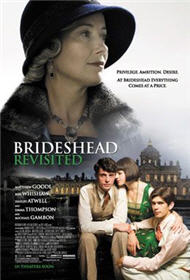
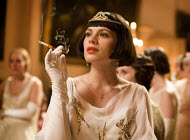

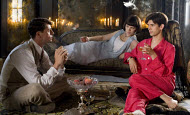

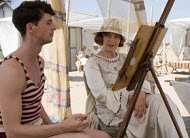
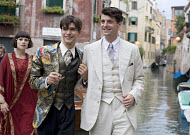
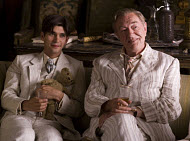

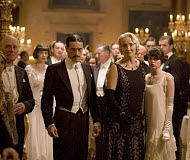
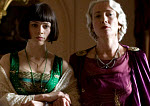
How can we know there’s a God? Answer
What if the cosmos is all that there is? Answer
If God made everything, who made God? Answer
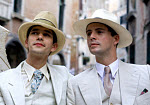
What does the Bible say about adultery? Answer
What’s wrong with being gay? Answer
Homosexual behavior versus the Bible: Are people born gay? Does homosexuality harm anyone? Is it anyone’s business? Are homosexual and heterosexual relationships equally valid?
What about gays needs to change? Answer
It may not be what you think.
Read stories about those who have struggled with homosexuality
| Featuring |
|---|
|
Emma Thompson Michael Gambon Matthew Goode Ben Whishaw Felicity Jones See all » |
| Director |
| Julian Jarrold |
| Producer |
| Zakaria Alaoui, Enrico Ballarin, Robert Bernstein, Nicole Finnan, Tim Haslam, Hugo Heppell, Kevin Loader, Douglas Rae, Rosa Romero, David M. Thompson |
| Distributor |
“Privilege. Ambition. Desire. At Brideshead everything comes at a price.”
“Brideshead Revisited” is another adaptation of a classic book written by a Christian author. A Christian author, in this case Mr. Evelyn Waugh, nobody seems to know about unless they’ve taken literature classes or seen the BBC mini-series with all of it’s rather silly, longing gazes between the characters.
The book is a classic. It is similar to The End of The Affair by Graham Greene, in that it’s about men who don’t believe in God and their various romantic and social entanglements with those that do. In this story, it is all about Charles Ryder. Charles is a lower-middle class British student/artist who is now going to Oxford with all of the rich people he’s jealous of and can’t wait to be. Upon arriving, he meets Sebastian Flyte. Sebastian is a very wealthy man who also happens to be a self-hating, homosexual Catholic. They become good friends almost immediately, and Sebastian takes him to Brideshead where Charles meets his beautiful sister, Julia, and his over-protective mother, Lady Marchmain, both of them Catholic, too.
After he meets the family, a series of moral judgments have to be made by Charles that affect all of the characters. All of the decisions stem from British class system rules, Christian doctrine, or for that matter common sense. Needless to say that his decisions obviously don’t always turn out the best, because the movie and book are rather long.
The mini-series had the luxury of being able to include the whole book. The movie only focuses on the more soap opera aspects of the book. It also is a lot more judgmental of Christians than the book. A difference created probably by the writers not sharing the same faith. Mr. Waugh’s work is so thoroughly Christian that in spite of that the movie comes off Christian. In many ways, the movie plays now like Paradise Lost for people who like period piece films. Charles being the devil and the various characters being eaten up by him as he indulges each of their vices. It is also rather fascinating watching a villain at his work. Something akin, almost, to a spiritual slasher film.
Even though the movie is essentially Christian, many will probably be offended. The film contains homosexuality, adultery, and many general vices. The biggest sticking point is probably the sexual content. It never shows anything overly explicit, outside of a rather long and silly James Bond style sex scene. The difference between the scene and one from a James Bond movie is that it’s framed and filmed like they are in hell or some sort of dungeon like place. It’s not pleasant, despite the good looks of those involved. It also has two quick homosexual kisses. Neither of the kisses are played as erotic, exciting, or pleasant. If anything, it’s refreshing to see a movie where sex has it’s consequences.
The movie is pretty to look at. The actors are almost all uniformly good. The three main leads are excellent—especially, Ben Whishaw as Sebastian and Hayley Atwell as Julia. They both play inveterate sinners who know they need to stop and want to be good, but always seem to find new ways to be bad—until the end when they each have their moment of hope. Thankfully, neither one of them plays their various twists and turns as insincere, nor do they ever give the idea that they hate the choice the character makes, like so many an actor does.
So in the end, I think the movie is worth seeing. It is aimed at adults, and it’s been made for them. It has a plot, dialogue, no explosions, and no Miley Cyrus. Also, unlike say “The Dark Knight,” the movie is willing to really deal with morals and not tack them on everywhere, just so it can seem deeper than it is. If you can handle some sexual content in your movies, and you want to see something that isn’t a teenage sex comedy, a man in tights hitting criminals, or even if you do want to see all of the above, it’s worth seeing.
Violence: Minor / Profanity: Moderate / Sex/Nudity: Moderate
See list of Relevant Issues—questions-and-answers.


Moral rating: Very Offensive / Moviemaking quality: 3½
Moral rating: Offensive / Moviemaking quality: 4




Unlike those movies this one manages to still stay a float. Mr. Waugh’s angry tirade against the vices of the past century or so are on full display along with his own fears about the corruption of the church from within. Of course, it’s also a better version of Paradise Lost. Probably because Waugh unlike Milton was not an angry old man with a nothing but a dense sense of prose.
The Christian bits are impossible to miss. So much so that by the end of the movie the audience seemed to be a little annoyed that they’d been duped into a religious movie. So yes, it’s offensive that the filmmakers tried to make the evil main character more sympathetic.
Content wise, the movie is not for children. The movie deals with homosexuality as the book did. It was a common thing back then among the upper classes of Europe. People have affairs but, unlike say something like Mama Mia where you have a colorful dance number out about your mom being a slut, the movie does not condone it. The book certainly didn’t.
So, I think it’s worth seeing. The performances are excellent. Especially, Ben Whishaw as the guilt riddled, emotionally damaged homosexual who finds peace serving as a novice monk in a hospital. He manages to make the character sympathetic with the sadness behind his eyes at his own guilt and the wound up bit of wire that his body so unhealthily resembles here.
It worth at least a try and certainly a reading of the book, which is one of the most beautiful in the English language bar work by Graham Greene or Vladimir Nabokov.
My Ratings: Moral rating: Offensive / Moviemaking quality: 4